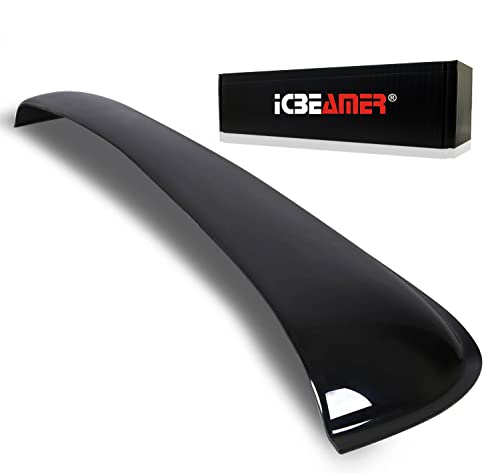Can You Claim a Car on Taxes? Maximize Deductions Now!
Yes, you can claim a car on taxes, but only if you use it for business purposes. If you use your car exclusively for business, you may deduct the entire cost of ownership and operation.
However, if you use the car for both personal and business purposes, you can only deduct the cost of its business use. It is important to keep clear records to support your claims when filing taxes. Deducting car expenses can be a great way to lower your tax bill, but it is important to understand the rules and limitations set by the IRS.
In this blog, we will discuss the conditions for claiming a car on taxes and the steps to take to ensure that you are eligible for the deduction. We will also provide some tips to help you maximize your deduction and avoid any mistakes that could lead to penalties or audits.
Eligibility For Car Tax Deductions
If you’re wondering whether you can claim a car on your taxes, the answer depends on whether you use the car for business or personal purposes. For business owners and self-employed individuals, it may be possible to deduct certain expenses related to the car, such as fuel costs, maintenance, and repairs. However, if you also use the car for personal reasons, you can only deduct the portion of expenses that are directly related to business use. It’s important to keep clear records to support your claims and ensure compliance with IRS regulations. On the other hand, if you’re an employee of someone else’s business, you generally cannot claim deductions for car-related expenses. Remember to consult a tax professional for specific advice tailored to your situation.
| Can You Claim a Car on Taxes? |
|---|
| Eligibility for Car Tax Deductions |
| Business Use vs Personal Use |
| Self-Employment and Freelancers |
Types Of Deductible Car Expenses
When it comes to deductible car expenses, there are a few types that you can claim on your taxes. One of these is depreciation deductions. If you use your car exclusively for your business, you may be able to deduct the full cost of purchasing, maintaining, and repairing it. However, if you use your car for both business and personal purposes, you can only deduct the cost of its business use. Another type of deductible expense is operating costs and maintenance. This includes expenses such as fuel, oil changes, repairs, and insurance. It’s important to keep clear records to support your claims when filing your taxes. Remember, if you’re an employee of someone else’s business, you may not be eligible to claim certain deductions. Always consult with a tax professional for guidance specific to your situation.
Maximizing Deductions For Business Owners
When it comes to maximizing deductions for business owners, keeping accurate records is crucial. For those who use their car for business purposes, a proportional deduction based on mileage is a key factor. It’s important to have clear records to support claims, as the IRS requires documentation for deductions. Business owners need to carefully track mileage and keep detailed records of car expenses to ensure accurate deductions. By maintaining thorough and accurate records, business owners can maximize their tax deductions and minimize any potential issues with the IRS.
Deductions For Employees
When it comes to claiming a car on taxes, W-2 employees have limitations. Employees must meet specific criteria to qualify for deductions. If the car is used for both business and personal purposes, only the business use portion is deductible. It’s crucial to maintain accurate records to support any claims for tax deductions.
For self-employed individuals or business owners who use a vehicle for business purposes, they may be eligible to claim tax deductions for car-related expenses. This includes costs for purchasing, maintaining, and repairing the vehicle. Clear records are essential to substantiate these deductions when filing taxes.
Loan Interest And Car Payments
| Can You Claim a Car on Taxes |
| Loan Interest and Car Payments |
| Deducting Car Loan Interest |
When it comes to taxes, it’s essential to understand the distinction between personal and business loans. For individuals who are self-employed or own a business, they can potentially deduct car loan interest from their taxes. However, this deduction is not available for employees of other businesses.
If the car is used for both personal and business purposes, the expenses must be split accordingly. For those who use the car solely for business, they may be able to deduct the entire cost of ownership and operation, subject to specific limits. Moreover, taxpayers can potentially deduct the state and local sales tax on a vehicle purchase, depending on the amount paid.
Sales Tax Deduction On Car Purchases
When it comes to taxes, you can deduct sales tax on a vehicle purchase, specifically the state and local sales tax. However, if you use the car for both business and personal purposes, you can only deduct the cost of its business use.
Keeping clear records is essential to support your claims.
| Sales Tax Deduction on Car Purchases |
| State and Local Sales Tax |
Special Circumstances
|
If you own an electric or hybrid vehicle, you may be eligible for a tax credit. The federal government offers a tax credit of up to $7,500 for new electric and plug-in hybrid vehicles. The credit amount varies based on the battery capacity and the manufacturer. Additionally, some states offer their own incentives for electric and hybrid vehicles, such as rebates or tax credits. |
|
If you donate your car to a qualified charitable organization, you may be eligible for a tax deduction. The amount of the deduction is based on the fair market value of the car at the time of the donation. However, if the charity sells the car, the deduction may be limited to the amount the charity received from the sale. |
|
Under certain circumstances, you may be able to claim a car on your taxes. If you use your car exclusively for business purposes, you may be able to deduct the entire cost of owning and operating the car. However, if you use the car for both personal and business purposes, you can only deduct the portion of expenses that were used for business. Additionally, if you purchase a car for personal or business use, you may be able to deduct either the local and state sales tax or the local and state income tax when you file your income tax return. |
Avoiding Common Pitfalls
If you’re considering claiming a car on taxes, it’s important to understand the guidelines. Consulting with tax professionals can help you navigate the process and ensure compliance with regulations. Avoiding audits and penalties is crucial, so maintaining clear records to support your claims is essential. If you use the car for both business and personal purposes, the expenses must be split accordingly. Deducting the entire cost of ownership and operation is only possible if the car is used exclusively for business purposes. When it comes to car loan interest, only self-employed individuals or business owners can claim this deduction. Additionally, sales tax can be deducted for vehicle purchases, but only the state and local sales tax. Understanding these key points can help you navigate the process and maximize potential tax benefits.
Conclusion
Claiming a car on taxes is possible, but there are limitations. If you use your car exclusively for business purposes, you can deduct the full cost of ownership and operation. However, if you use it for both business and personal use, you can only deduct the cost of its business use.
It is crucial to maintain clear records to support your claims when dealing with the IRS. Remember to consult with a tax professional for personalized advice.






